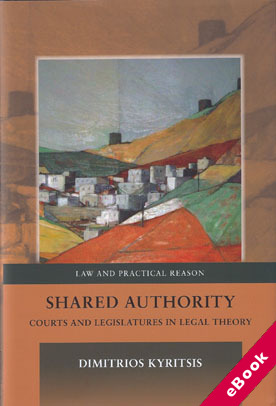
The device(s) you use to access the eBook content must be authorized with an Adobe ID before you download the product otherwise it will fail to register correctly.
For further information see https://www.wildy.com/ebook-formats
Once the order is confirmed an automated e-mail will be sent to you to allow you to download the eBook.
All eBooks are supplied firm sale and cannot be returned. If you believe there is a fault with your eBook then contact us on ebooks@wildy.com and we will help in resolving the issue. This does not affect your statutory rights.
This important new book advances a fresh philosophical account of the relationship between the legislature and courts, opposing the common conception of law, in which it is legislatures that primarily create the law, and courts that primarily apply it.
This conception has eclectic affinities with legal positivism, and although it may have been a helpful intellectual tool in the past, it now increasingly generates more problems than it solves. For this reason, the author argues, legal philosophers are better off abandoning it. At the same time they are asked to dismantle the philosophical and doctrinal infrastructure that has been based on it and which has been hitherto largely unquestioned. In its place the book offers an alternative framework for understanding the role of courts and the legislature; a framework which is distinctly anti-positivist and which builds on Ronald Dworkin's interpretive theory of law.
But, contrary to Dworkin, it insists that legal duty is sensitive to the position one occupies in the project of governing; legal interpretation is not the solitary task of one super-judge, but a collaborative task structured by principles of institutional morality such as separation of powers. Moreover in this collaborative task, different participants have a moral duty to respect each other's contributions.